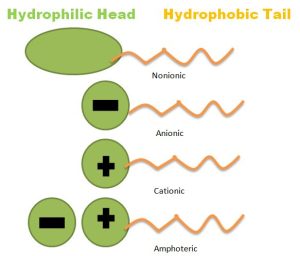Anionic surfactants are a crucial component in numerous applications across various industries. Their unique properties make them ideal for tasks where effective cleaning, emulsifying, or foaming is required. This article delves into the details of their purposes, highlighting their significance in everyday products and industrial processes.
Cleaning and Detergent Industry
Household and Industrial Cleaning
Anionic surfactants, primarily used in detergents, play a vital role in removing dirt and grease. Their molecular structure allows them to effectively bind with dirt and oil, making them water-soluble and easy to rinse away. This property is essential in products like laundry detergents, dishwashing liquids, and all-purpose cleaners.
Personal Care Products
In personal care products like shampoos and body washes, anionic surfactants contribute to the cleansing power. They help in removing oils and dirt from the skin and hair, providing a deep cleaning effect. Additionally, they are responsible for creating the rich lather that many consumers associate with cleanliness.
Industrial Applications
Emulsification
Anionic surfactants are excellent emulsifiers. They are used in industries to mix oil and water-based components that typically do not blend. This property is crucial in the production of lotions, creams, and certain pharmaceuticals.
Foaming Agents
Due to their ability to produce stable foam, anionic surfactants find extensive use in firefighting foams and foam-based concrete. The foam generated is essential for trapping air in concrete, making it lightweight, or in firefighting foams, for suffocating fires effectively.
Environmental and Health Aspects
Biodegradability
Anionic surfactants, while effective, also raise environmental concerns. Their biodegradability is a critical factor in determining their environmental impact. Modern formulations are designed to degrade more quickly and completely, reducing their ecological footprint.
Skin Sensitivity
It's important to note that some anionic surfactants can cause skin irritation. Manufacturers often balance their formulations to minimize these effects, especially in personal care products.
Economic Considerations
Cost-Effectiveness
Anionic surfactants are generally cost-effective, making them a preferred choice in various industries. They offer efficient cleaning properties at a lower price point compared to non-ionic or cationic surfactants.

Efficiency and Performance
The efficiency of anionic surfactants in removing dirt and oil is unmatched, which is why they are the primary ingredient in many cleaning agents. Their performance is often measured in terms of soil removal efficiency, emulsification power, and foam stability.
Conclusion
Anionic surfactants are indispensable in our daily lives and industrial processes. Their multifaceted roles, from cleaning to emulsifying, make them a backbone in many formulations. Understanding their properties, applications, and impacts helps in appreciating their significance and also in addressing the environmental concerns associated with their use.
For more detailed information about anionic surfactants, you can visit this website.
